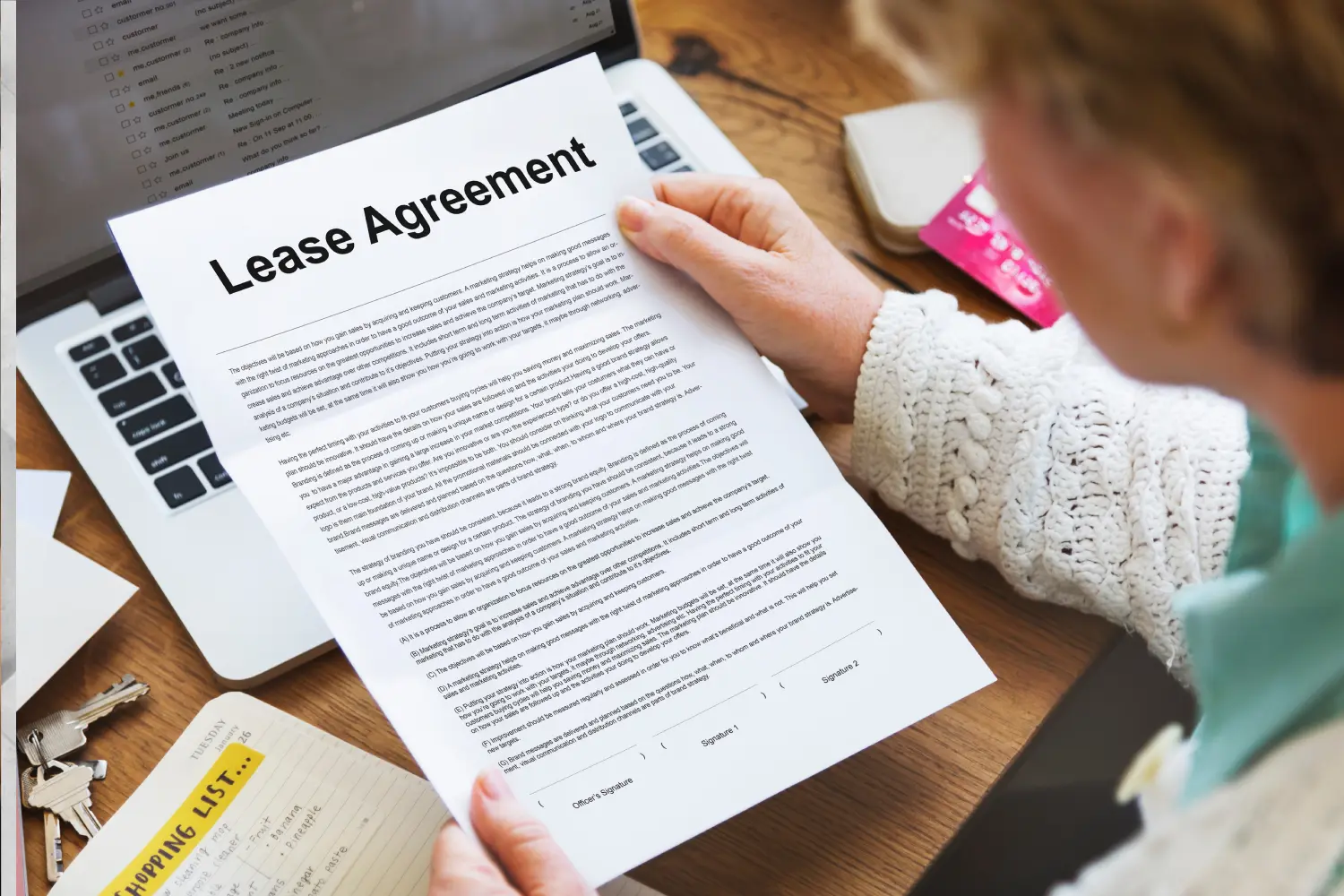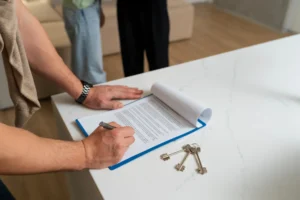Renting a property is an exciting step, whether you’re moving into your first apartment or upgrading to a bigger home. However, one of the most overlooked aspects of renting is the lease agreement. Many tenants sign their lease without fully understanding the terms, only to face unexpected charges, penalties, or disputes later.
Your lease agreement is more than just a contract—it defines your rights and responsibilities as a tenant. Taking the time to review it properly can save you money, stress, and legal headaches. This guide will walk you through why reading your lease is essential, common clauses to watch out for, and how to protect yourself from hidden costs.
What Is a Lease Agreement and Why Does It Matter?
A lease agreement is a legally binding contract between a landlord and a tenant, outlining the terms of the rental arrangement. It typically includes:
✅ Rent amount and payment due dates
✅ Deposit details and refund conditions
✅ Lease duration and termination terms
✅ Rules for maintenance and repairs
✅ Penalty clauses for breaking the lease early
Once signed, the lease is enforceable by law. If you fail to comply with its terms, you could face financial penalties, eviction, or even legal action. That’s why understanding every clause before signing is crucial.
Why You Should Never Rush to Sign a Lease
Many tenants feel pressured by landlords or real estate agents to sign the lease quickly, especially in competitive rental markets like Cape Town, Johannesburg, and Durban. However, rushing into an agreement without reading the fine print can lead to serious financial consequences.
💡 Common Pressure Tactics Tenants Face:
🔹 “Other people are interested in this property, so sign today!”
🔹 “We need an immediate commitment, or you’ll lose the unit.”
🔹 “The landlord won’t change the terms—take it or leave it.”
How to Avoid Being Pressured:
✔ Politely ask for more time to review the lease.
✔ Set a deadline for when you’ll respond.
✔ Consult a lawyer or property expert for clarification.
If a landlord refuses to give you time to review the lease, it could be a red flag that the contract contains unfavourable terms.
Key Lease Clauses to Pay Close Attention To
Many tenants sign their lease without fully understanding important clauses that could impact them financially. Here’s what you need to watch out for:
1. Early Termination & Exit Penalties
Breaking a lease early can be costly. Some agreements require tenants to pay:
❌ One to three months’ rent as a penalty
❌ Costs to find a new tenant (advertising & agent fees)
❌ A full rental payment for the remaining lease period
💡 Example: If your rent is R10,000 per month and you move out six months early, you could owe more than R60,000 in penalties.
2. Notice Periods for Moving Out
Even after your lease ends, you may still need to give advance notice (typically 30 to 60 days). If you fail to provide the required notice, you may be charged extra rent.
💡 Tip: Always send your notice in writing and keep proof of communication.
3. Rent Increases & Escalation Clauses
Some leases state that rent will increase annually, usually by 6% to 10%. Check for:
✅ The percentage increase
✅ Whether the landlord must give advance notice before raising rent
The Hidden Costs of Not Reading Your Lease
Many tenants unknowingly agree to terms that result in additional unexpected costs, such as:
🚩 Loss of security deposit due to overlooked clauses
🚩 Being charged for repairs that should be the landlord’s responsibility
🚩 Paying rent after moving out due to insufficient notice
🚩 Penalty fees that are higher than expected
These extra costs can quickly add up, making it essential to carefully read and understand your lease before signing.
How a Lawyer Can Help Protect You
Many legal terms in lease agreements can be confusing. Consulting a property lawyer or rental expert can help you:
✅ Identify unfair clauses
✅ Clarify legal jargon
✅ Negotiate better terms with the landlord
✅ Avoid expensive penalties
💡 While hiring a lawyer may seem costly, it can save you thousands in unexpected fees down the line.
Tips for Tenants Before Signing a Lease
🔹 Request a Draft Copy Early – Get the lease in advance to read through it properly.
🔹 Seek Clarifications – Ask about any terms you don’t understand.
🔹 Negotiate Unfair Clauses – Many lease terms are negotiable, including penalties.
🔹 Document Everything – Keep records of all agreements and conversations.
🔹 Check Local Rental Laws – Ensure the lease complies with South African rental laws.
Legal Protections for Tenants in South Africa
Under the Rental Housing Act, tenants have rights that protect them from unfair practices. These include:
✅ The right to receive a written lease agreement
✅ Protection against unfair eviction
✅ The right to fair rental increases with reasonable notice
If you believe your lease contains unfair clauses, you can contact the Rental Housing Tribunal for help.
Frequently Asked Questions about Lease Agreements in South Africa
What is a lease agreement?
A lease agreement is a legal contract between a landlord and tenant that outlines the terms of renting a property, including rent amount, deposit, lease duration, and penalties.
What happens if I break my lease early?
You may be charged penalties, which could include several months’ rent, advertising costs, and re-letting fees. Always check the early termination clause.
Can my landlord increase rent without notice?
No. The lease must specify the percentage increase and notice period for rent escalations. In most cases, landlords must provide written notice.
What is the notice period for moving out?
Most leases require 30 to 60 days’ notice. Failing to give notice may result in being charged for an extra month’s rent.
How do I get my security deposit back?
To get your full deposit refund, ensure:
✔ You leave the property in good condition
✔ You request a joint inspection before moving out
✔ You keep receipts for any repairs you paid for
What should I do if I don’t understand my lease agreement?
Ask the landlord for clarification or consult a property lawyer or the Rental Housing Tribunal for advice.
Conclusion: Knowledge Is Power
Understanding your lease agreement before signing is one of the most important steps you can take as a tenant. Taking the time to review the terms, negotiate where necessary, and seek expert advice can save you money and protect your rights.
🏡 Final Tip: Never let pressure or urgency rush you into signing a lease you don’t fully understand. A few extra hours of review can prevent months of financial and legal trouble.
📢 Looking for a rental? Browse trusted listings on Propertify today!








